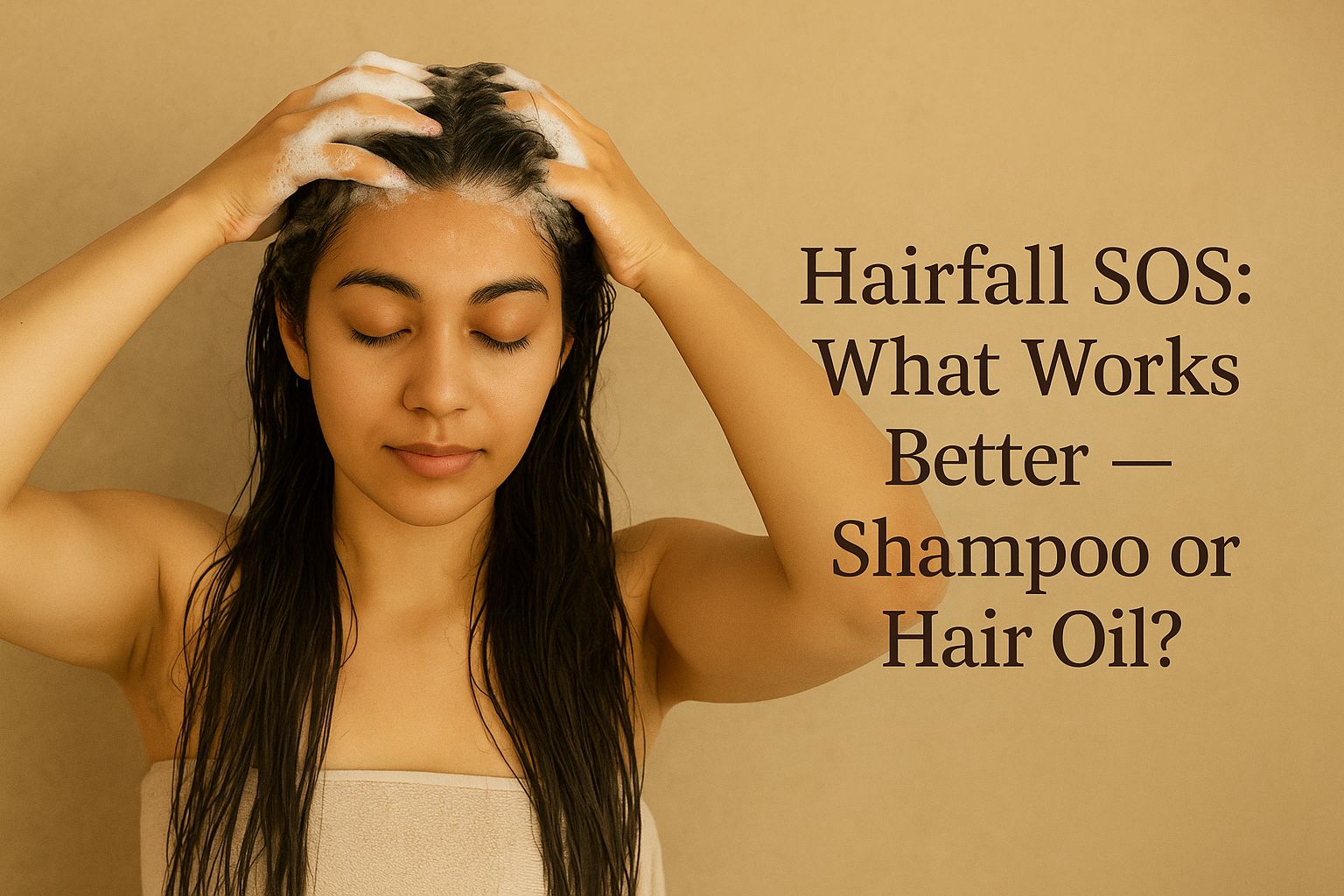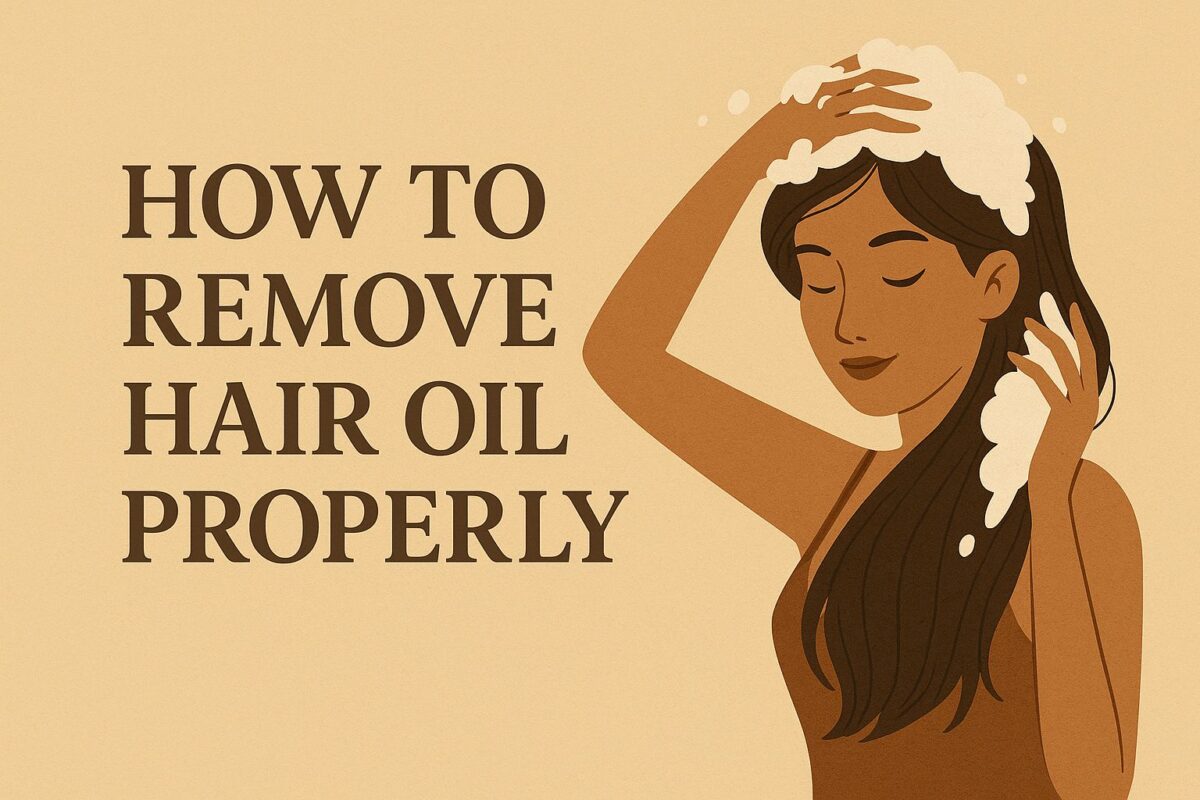Hairfall SOS: What Works Better — Shampoo or Hair Oil?

Hair fall is something almost all of us deal with — especially during seasonal changes, stressful periods, or postpartum recovery. But when you start noticing more strands on your pillow, the question arises:
Should you switch to a gentler shampoo? Or turn back to your grandmother’s trusted ritual of hair oiling?
Let’s explore what truly helps — and how the most effective remedies may be simpler (and more traditional) than we think
Shampoo’s Role: Cleansing, Not Healing
Yes, shampoo is important. But let’s be clear — it’s meant to cleanse, not heal.
A good shampoo helps remove buildup, sweat, pollution, and product residue. But if it’s too harsh — especially if it contains sulfates or drying agents — it can weaken your scalp’s barrier and worsen hair fall over time.
If you’re shampooing frequently without preparing your scalp (or using poor-quality products), you may be contributing to the problem rather than solving it.
A clean scalp is crucial — but shampoo alone isn’t enough to stop hair fall.
Oiling: A Nourishing Ayurvedic Ritual
According to Ayurveda, hair health begins at the scalp.
Oiling is like feeding your roots — it nourishes the scalp, improves circulation, strengthens follicles, and even calms your nervous system (yes, really!). For those dealing with postpartum hair loss, stress-related shedding, or nutrient deficiencies, oiling becomes your best ally.
As dermatologists have noted in The Times of India, regular oiling helps reduce protein loss, protects the hair shaft, and supports long-term strength. The effect is amplified when oils are:
- Infused with Ayurvedic herbs
- Warmed slightly
- Applied as part of a calming ritual
The Secret? Balance Oil & Shampoo
So, what works best for preventing hair fall?
The answer is: Both. Together.
If you’re relying only on shampoo to solve your hair fall issues, you’re missing the root of the problem.
Here’s how to build a balanced, ritual-based hair care practice:
✅ Oil your hair 1–2 times a week.
Choose oils with cold-pressed bases like sesame, almond, coconut, or castor — and infused with potent herbs like Bhringraj, Ashwagandha, Amla, and Kumari. Whether it’s a time-honored family recipe or a thoughtfully crafted postpartum hair oil like Keshavi Maatr, what matters is consistency.
✅ Use a gentle, sulfate-free shampoo.
Aim for mild, natural formulations that cleanse without stripping the scalp of essential oils. This protects the benefits of your oiling ritual.
✅ Let oiling become a ritual, not a chore.
Many women find that when they dim the lights, warm the oil, play calming mantras, and massage slowly — something shifts inside. It becomes a sacred moment of self-connection.
Whether you return to your roots or try a new-age Ayurvedic blend — don’t skip the oil. Your scalp, strands, and spirit will thank you.
A Final Thought: Roots Take Time
Hair fall doesn’t reverse overnight — but your relationship with your hair can shift almost instantly.
Stop seeing it as a problem to fix. Start seeing it as something sacred to nourish.
Whether you use a postpartum healing oil, a seasonal Ayurvedic blend, or your dadi’s recipe, begin gently. Stay consistent. Trust the process.
You’ll see the difference.
More importantly — you’ll feel it.
Curious to Try a Ritual-Based Hair Oil?
Discover the sacred oiling experience trusted by women seeking emotional and physical healing after childbirth.
👉 Explore Keshavi Maatr — Postpartum Hair Oil
👉Explore Keshavi Sampoorna – Daily Nourishment Oil
(Ayurvedic. Therapeutic. Ritual-based.)
Written with love,
By the team at Keshavi Ayurveda
Where care isn’t rushed. And healing is ritual.


